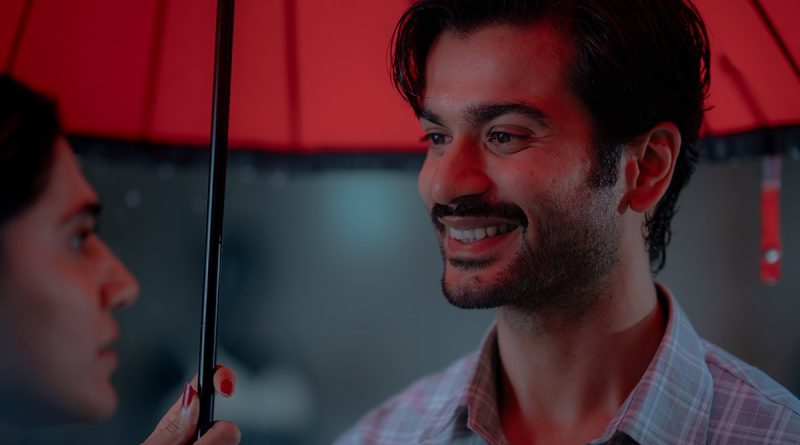Review: Phir Aayi Hasseen Dillruba – Taapsee Pannu and Vikrant Massey’s Netflix Original Falls Short
Three years ago, when I viewed Netflix’s Haseen Dillruba, despite not being a devotee of romantic crime thrillers, I found myself surprisingly engrossed. The movie was excellently scripted, reflective, had numerous layers, and was thoroughly entertaining. Consequently, upon the announcement of the sequel, I eagerly prepared with my popcorn bucket, soda can, and high expectations. To express that Phir Aayi Hasseen Dillruba fell short of expectations would be an understatement. Jayprad Desai’s follow-up appears to be a desperate effort to capitalize on the success of the original, without any consideration or thought given to the new narrative. While Desai endeavors to replicate the essence of the initial film, he appears to have disregarded the elements that made Haseen Dillruba successful.
During our last visit to the Dillruba universe, Rishabh (Vikrant Massey) had severed his hand and orchestrated his own demise to save his unfaithful wife Rani (Taapsee Pannu) from imprisonment for the murder of her former lover. This dramatic conclusion provided an ideal platform for the director to expand into something more profound for a sequel. However, Phir Aayi Hasseen Dillruba is plagued by sluggish pacing, a drawn-out screenplay, cringeworthy dialogue, an implausible plot, and a lack of a compelling hook to engage viewers in its narrative.
The narrative commences in Agra, where Rani resides as a modest makeup artist, while Rishabh lurks incognito, striving to arrange for the couple to relocate overseas and start anew. With the Uttar Pradesh police inexplicably fixated on the case, the two toxic lovers cannot be seen together. They now exchange furtive glances like forbidden high school sweethearts across the street, engage in lengthy phone conversations, and rendezvous in secrecy.
And as always, they converse fluently in Dinesh Pandit – the crime novelist whose writings provided them with the perfect escape plan previously. You’ll witness the eccentric couple inscribing quotes from his books on walls or even garbage trucks to communicate with each other. While the remainder of the film may be agonizing, this intellectual exchange is undeniably impressive. Despite lacking practicality, the almost Sherlockian concept aligns with the madness that had overtaken our protagonists towards the conclusion of the initial film.
A new primary character is introduced: Abhimanyu, a medical aide infatuated with Rani – reminiscent of Rishabh’s pre-tragedy phase. He remains perpetually hopeful of winning over the widow, oblivious to her criminally insane and ostensibly deceased husband and their unsettling past. While Sunny Kaushal delivers a stellar performance in certain scenes that effectively convey the eeriness of the circumstances – particularly in his initial encounter with Massey on an amusement park ride – the character feels inadequately developed.
Other pivotal characters, including the protagonists Pannu and Massey, as well as Jimmy Shergill’s Monty, encounter similar fates. Unlike the prior film, the underwhelming script affords little opportunity for the characters to shine and expose a darker facet of their personalities. Witnessing such a talented ensemble of actors being underutilized is inexcusable.
There is a sequence in which Shergill, portraying a police officer and the victim’s uncle in the film, informs his superior that “this case is like indigestion.” While creative license and dramatic dialogue are permissible, this instance felt completely out of place, Jimmy. His sporadic appearances are marred by overacting and fail to convey the anguish of someone who has recently lost their nephew and now seeks retribution.
The film also suffers from irrationality. Numerous events unfold simply because the filmmaker desires them to transpire in that manner. While some illogical plot points could be attributed to chance and coincidence, the narrative excessively relies on convenience and verges on incredulity. Characters hastily wed and meet their demise in the span of three days; individuals leisurely boat in a crocodile-infested river; leaping off cliffs results in negligible injury; and chance encounters abound! Even if the creators aimed to infuse the story with a tabloid column vibe, a modicum of rationality would have enhanced the narrative.
Nevertheless, the film adeptly incorporates visual metaphors. Throughout the movie, numerous astute poetic allusions are discernible. The most intriguing of these is Rani’s hand-shaped phone stand. The incorporation of “Ek Haseena Thi” from Rishi Kapoor’s Karz (1980) constitutes another intriguing selection. The song narrates a tale of betrayal by a woman and contributes the ideal touch to maintain a playful ambiance. Regrettably, Kapoor’s medley alone cannot sustain the film.
Phir Aayi Hasseen Dillruba fails to evoke the curiosity typically associated with such thrillers. Even the surprising revelations fail to elicit genuine shock. The plot falls short, lacking genuine thrills. Given the characters’ burgeoning cynicism in the original movie’s denouement, a deeper exploration was imperative to sustain the momentum. The film scarcely delves beneath the surface, presenting a superficial sequence of events. Despite the characters’ fervent outbursts and emotional displays, the film fails to elicit empathy, unlike its predecessor.
The sole impetus to endure this two-hour letdown is the faint hope that the original film’s allure will resurface. Indeed, it does so sporadically and fleetingly. For enthusiasts like myself, these fleeting glimpses serve as a cruel tease, hinting at the potential greatness had the sequel matched its forerunner’s caliber. If you are unacquainted with Rani and Rishu’s twisted romance, you may overlook its flaws. However, if you are familiar with the initial film, the disillusionment may prove unbearable.
Rating: 6/10

